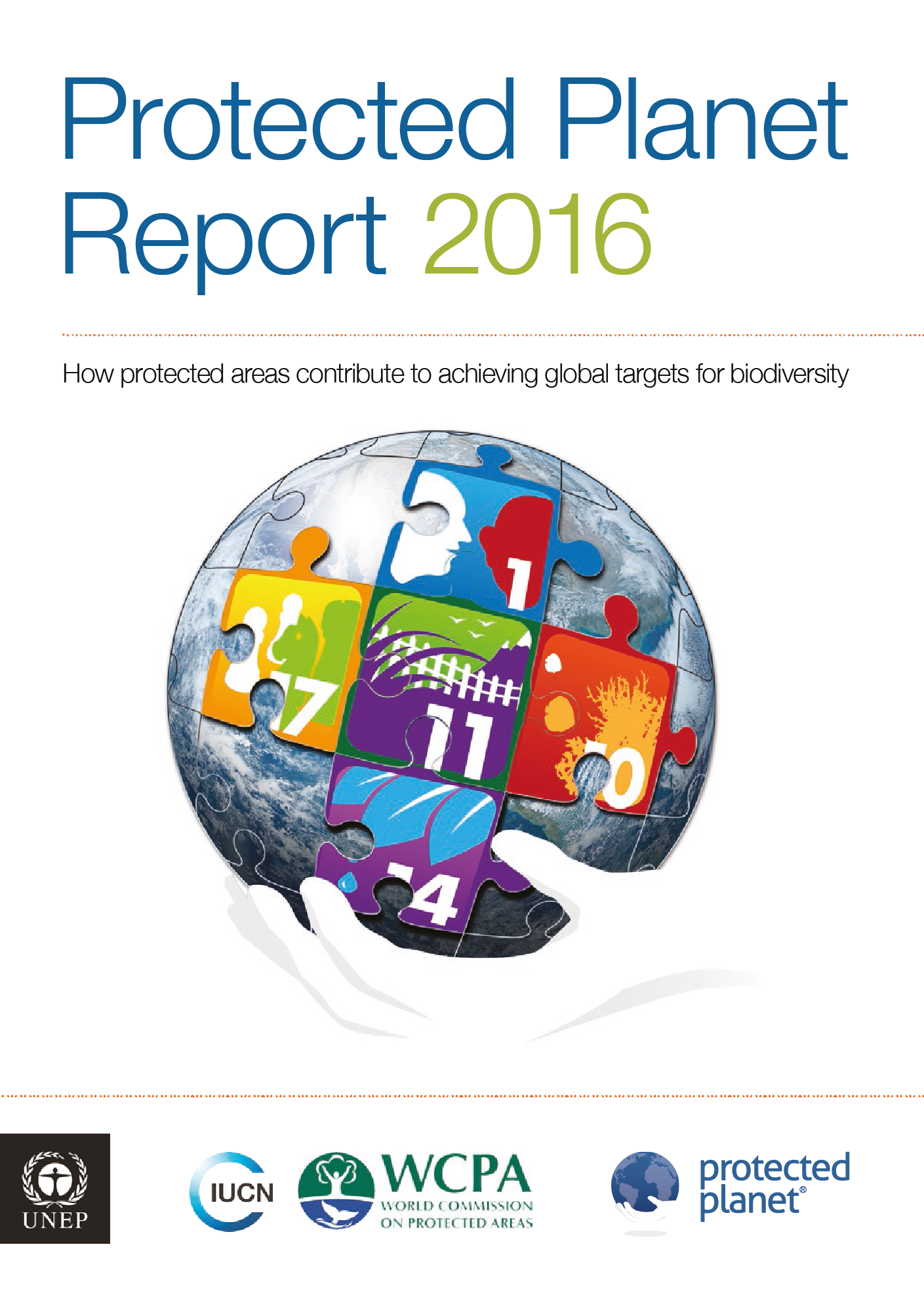
In 2010, the Parties to the Convention on Biological Diversity (CBD), adopted the Strategic Plan for Biodiversity 2010-2020 and its 20 Aichi Biodiversity Targets. It has since been endorsed by multiple Multilateral Environmental Agreements as a global framework for biodiversity. In 2015, the members of the United Nations adopted the 2030 Agenda for Sustainable Development and its Sustainable Development Goals (SDGs). These constitute two of the most important environment and sustainable development commitments ever made by governments in the international fora, and both recognize the important role of protected areas as a key strategy for biodiversity conservation and sustainable development in the targets they contain, for example, Aichi Biodiversity Target 11, SDG goals 14 and 15. The global protected areas estate is therefore an important contribution to achieving these commitments.
The Protected Planet Report 2016 assesses how protected areas contribute to achieving the Aichi Biodiversity Targets and relevant targets of the Sustainable Development Goals, and highlights current research and case studies as examples of the role protected areas play in conserving biodiversity and cultural heritage.














